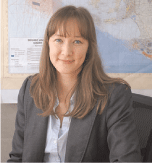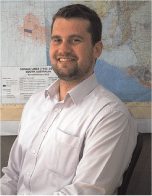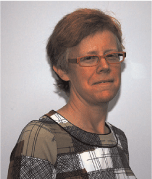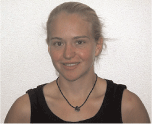A roadmap for community and investor satisfaction from unconventional gas development
Barry Goldstein A , Anthony Hill A , Michael Malavazos A , Sandra Menpes A , Alexandra Wickham A , Michael Jarosz A , Dominic Pepicelli A , David Cockshell A , Elinor Alexander A , Mieka Webb A and James Coda ADepartment for Manufacturing, Innovation, Trade, Resources and Energy (DMITRE).
The APPEA Journal 53(2) 437-437 https://doi.org/10.1071/AJ12048
Published: 2013
Abstract
If a fraction of the national potential to produce unconventional gas is realised, then Australia will benefit:
-
security of domestic and export gas supplies for decades to come;
-
supply-side competition for decades to come;
-
improved balance of trade and transport fuel security as Australia’s supplants imports with gas-based transport fuel;
-
billions of dollars invested in environmentally sustainable projects;
-
thousands of jobs;
-
considerable royalties and tax for revenues public good; and,
-
world-class intellectual property that can be converted into export services and equipment.
Given these drivers, the SA State Government convened a Roundtable for Unconventional Gas Projects in October 2010. Participating in this roundtable are a total of 260 organisations plus individuals, including: peak representative bodies focused on economic, social, and natural environment outcomes; and, companies, universities, and key agencies from all state, NT, and commonwealth governments.
This roundtable informed a Roadmap for Unconventional Gas Projects in South Australia that was published in December 2012. The objectives of this roadmap are to credibly inform industry strategies, government policies, and public perceptions. In particular, this roadmap explains how people and enterprises potentially affected by unconventional gas operations are given information and time to draw considered views so their rights to object in part or full to activity—and location-specific land access—are supported. This will facilitate the efficient, profitable, and welcomed deployment of capital, technologies, and infrastructure for the commercialisation of unconventional gas. This extended abstract details the findings of this roadmap.

Barry Goldstein has 34 years of international experience in energy businesses. He is SA’s executive director for energy resources, leading a team of geoscientists, engineers, licensing and royalty specialists, and support staff. In this role, he is both hunter and games-keeper (e.g. both attracting and regulating investment). He is also, at present, chair of Australia’s CSG steering group and serves on other council of Australian Government committees, providing advice to state, territory, and Commonwealth minerals and energy resource ministers. Prior to joining the SA government, he was the exploration manager and chief geologist for Santos and the chief geologist for Bridge Oil and the Kuwait Foreign Petroleum Exploration Corporation, after starting with Phillips Petroleum. He has explored for, and discovered, energy resources the North Sea, Indonesia, Australia, PNG, and South America. He also serves as the: chairman of the Australian Geothermal Energy Group (AGEG); Australia’s representative and vice chairman of the Executive Committee for the IEA’s Geothermal Implementing Agreement; American Association of Petroleum Geologist’s Asia-Pacific EMD Councillor; AAPG House of Delegates representative for the Asia-Pacific region; member of the Australian Centre for Renewable Energy (ACRE) Expert Panel for Geothermal Energy; and, also serves on the Boards of the Geothermal Resource Council (USA) and the Australian School of Petroleum (University of Adelaide). He is a past president of the Petroleum Exploration Society of Australia (PESA) and has served on the boards of PESA (2001–07), the Australian Geoscience Council (2004–07), and the Federation of Australian Scientific and Technologic Societies (2004–07). He is a coordinating lead author for the IPCC’s 2012 Special Report on Renewable Energy. |

Anthony Hill graduated with a BSc (applied geology) from RMIT in 1980. He has 30 years of experience in petroleum system analysis and has also worked in the fields of hydrogeology and geothermal energy. He is presently principal geologist within the energy resources division at DMITRE. Member: PESA. |

Michael graduated with a BEng (chemical engineering) from the University of Adelaide in 1985 and an master’s degree (public policy and management) from Flinders University in 1997. He has more than 25 years of experience in many aspects of the oil and gas industry in Australia. He is presently director of engineer operations in the energy resources division at DMITRE. He is a Chartered Fellow Chemical Engineer. |

Sandra Menpes joined DMITRE’s energy resources division as a principal geoscientist in March 2010. Prior to joining DMITRE, she worked for 20 years’ exploring for oil, gas, and coal in proven and frontier Australian basins. She enjoys research, in particular basin history analysis and petroleum play development using the integration of geological and geophysical data. Her present research focus is unconventional oil and gas plays in South Australian basins. She holds a BSc (petroleum geology and geophysics) (hons) from the University of Adelaide and a graduate diploma (applied finance and investment). |

Alexandra Wickham holds a BEng (mechatronic) (hons) and BA (French) from the University of Adelaide. She joined the now energy resources division of DMITRE in 2008 and has worked in the areas of geothermal energy and new areas of activities and technologies regulated by the division. She is senior engineer in the engineering operations branch. |

Michael Jarosz joined DMITRE’s energy resources division in February 2009. His present role as principal engineer of pipelines and facilities focuses on technical regulation of oil and gas pipelines and facilities, including project approvals and facility management. He holds a BEng (mechanical engineering) (hons) and BEc from the University of Adelaide. |

Dominic Pepicelli joined DMITRE’s energy resources division as a project and well operations engineer in March 2010. His main focus at DMITRE now is reservoir engineering, in particular reserves estimation and unconventional reservoir studies. He holds a BEng (petroleum engineering) (hons) from the University of Adelaide. |

David Cockshell completed his BSc (hons) at the University of Adelaide in 1975. He was employed as a grade control officer/mine geologist in WA by Windarra Nickel Mines/Western Mining during 1975–76. He joined SA Department of Mines and Energy in 1977 as a geophysicist. He has remained with the SA government since then and is now director geophysical operations for DMITRE. He has had experience with a range of geophysical techniques covering data acquisition and interpretation as well as environmental management and petroleum and geothermal regulation. He provides policy advice on land access issues for the resource sector and leads a team of geophysicists and technical staff responsible for geophysical regulation and data management. |

Elinor Alexander graduated with BSc (geology) (hons) from the University of Adelaide in 1985. She then joined the oil, gas, and coal division of the Department of Mines and Energy as a petroleum geologist. She is now director of geology and exploration branch in the energy resources division of DMITRE. She leads a team of geologists and technical staff responsible for promoting petroleum and geothermal opportunities in SA using applied geoscientific studies, regulating company exploration work program compliance, and managing geological data. Elinor is a past president of PESA (SA branch). |

Mieka Webb joined DMITRE in 2012 after graduating from the University of Adelaide in 2011 with a BEng (chemical) (hons). In the past year, she has worked in the engineering operations branch in various areas, including geothermal energy and petroleum pipelines and facilities. |

James Coda graduated with a BSc (hons), an MSc, and an MPetEng. He has more than 16 years of industry and regulatory experience in the petroleum sector, including work in the North Sea, NW Atlantic Margins, and Africa. He joined the SA Government agency PIRSA’s mineral and energy resources division in 2004 and is now employed as principal engineer of drilling and field operations within DMITRE’s energy resources division. |
References
DMITRE, 2012—Roadmap for unconventional gas projects in South Australia. Accessed 16 May 2013. http://www.petroleum.dmitre.sa.gov.au/__data/assets/pdf_file/0008/179621/Roadmap_Unconventional_Gas_Projects_SA_12-12-12_web.pdf.DMITRE, 2013a—DMITRE Petroleum: petroleum and geothermal energy Act 2000. Accessed 16 May 2013. http://www.pir.sa.gov.au/petroleum/legislation/relevant_acts_and_regulations.
DMITRE, 2013b—DMITRE Petroleum: activity approval process. Accessed 16 May 2013. http://www.pir.sa.gov.au/petroleum/legislation/activity_approval_process.
FracFocus, 2013—FracFocus. Accessed 16 May 2013. http://fracfocus.org.
Goldstein, 2012—Beach Energy, statement of environmental objectives (SEO) for fracture stimulation of deep shale gas and tight gas targets in the nappamerri Trough (Cooper Basin), South Australia. Accessed 16 May 2013. http://www.pir.sa.gov.au/__data/assets/pdf_file/0020/175052/Significance_Assessment_Letter.pdf.
International Energy Agency (IEA), 2012—Golden rules for a golden age of gas: world energy outlook special report on unconventional gas. Accessed 16 May 2013. http://www.worldenergyoutlook.org/media/weowebsite/2012/goldenrules/WEO2012_GoldenRulesReport.pdf.
RPS and Beach Energy, 2012—Environmental impact report: fracture stimulation of deep shale gas and tight gas targets in the Nappamerri Trough (Cooper Basin), South Australia. Accessed 16 May 2013. http://www.beachenergy.com.au/IRM/Company/ShowPage.aspx?CategoryId=190&CPID=2937&EID=75598299.
Wikipedia, 2013—Seat belt legislation. Accessed 16 May 2013. http://en.wikipedia.org/wiki/Seat_belt_legislation#Australia.


